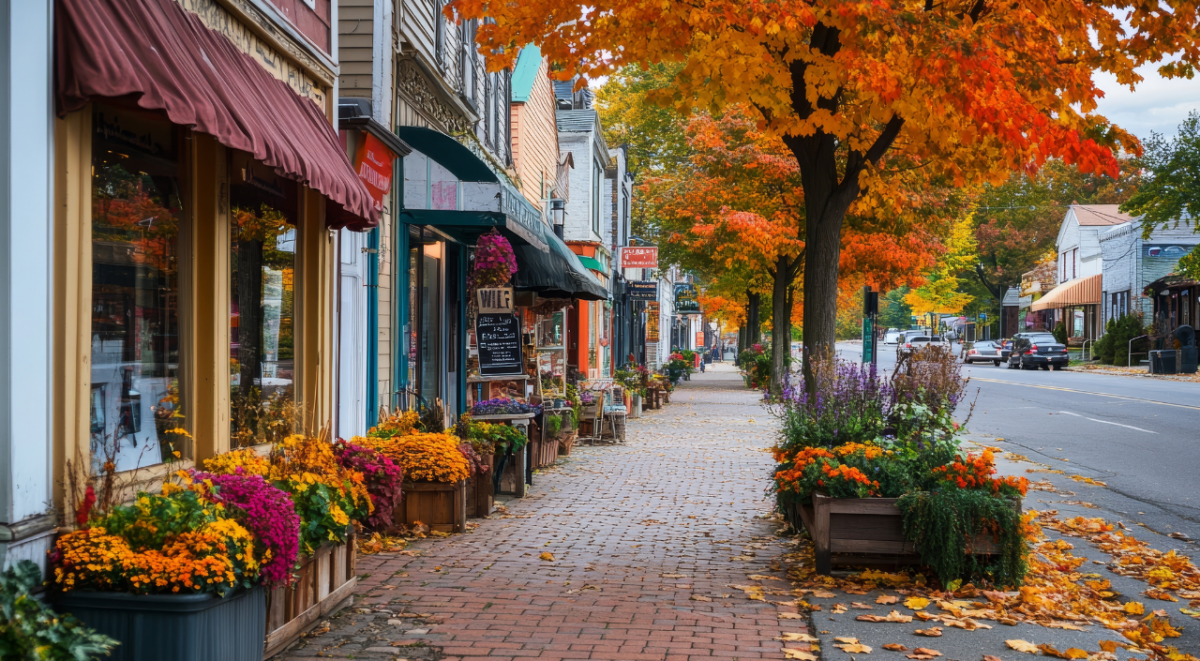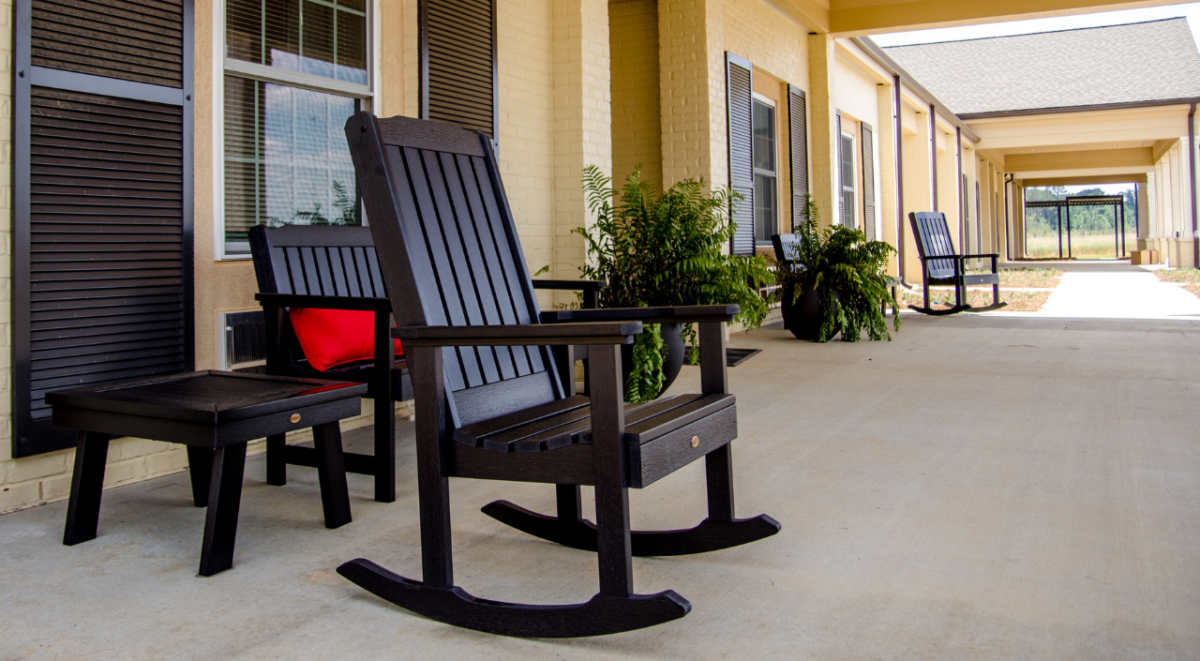Are you a business owner in Florida, or elsewhere in the U.S., who is desiring to expand your business and researching commercial loan possibilities? Then you should know about the outstanding commercial financing options that are available from North Avenue Capital (NAC). NAC is a private commercial lender that works in all 50 states and specializes in providing a variety of loans through the USDA’s Rural Development Loan Program. We are the nation’s #1 USDA Business & Industry Loans lender.
Commercial loans with favorable terms are available for all kinds of qualifying businesses, ranging from $2 million to $25 million and more (up to $40 million for certain cooperatives). NAC offers loans through USDA programs dedicated to Business & Industry, renewable energy, Food Supply Chain, healthcare, Community Facilities, and more! These loans are generally similar to the U.S. Small Business Association’s 7(a) loans, but with more attractive longer terms and higher loan amounts.
This USDA’s Rural Development business lending program supports the availability of private credit for growing businesses in rural areas across the U.S. The goal of the initiative is to create jobs and enhance economic prosperity in these areas. While most of the individual loan programs are specifically targeted for businesses in locations defined as “rural” by the USDA, that definition is surprisingly broad – any U.S. town or city with a population of less than 50,000, which represents approximately 97% of the geographic U.S. Businesses also may be headquartered in larger metro areas, if the specific division or branch for which the funding is applied to is in a qualifying area. Business owners can easily check to see if their address is in a qualifying area with this Geographic Eligibility Map.
Qualifying uses for business financing through the USDA Rural Development program include new business start-up, business acquisition, land acquisition and development, business expansion, conversion, modernization and repair, purchasing equipment and supplies, working capital, and debt refinancing.
All the USDA’s Rural Development business lending programs are collateral-backed loans for credit-worthy borrowers. Borrowers must have a minimum credit score of 680 with good payment history. This 680 threshold is actually considered “fair credit” by most lenders while 690 is typically considered “good credit.” Unlike many lenders who hard pull credit from the onset of the commercial loan application process, NAC only soft pulls a borrower’s credit during the early stages of loan origination to avoid creating any unnecessary hardship that might affect financing options in the future.
Borrowers must have no outstanding delinquent federal taxes, debt, judgment, or debarments, and must be able to provide collateral (tangible assets such as cash, fixed assets, equipment, or real estate discounted consistent with established LTV practices) to back the requested funding amount on a 1:1 basis.
A few of the USDA’s most popular Rural Development Programs that NAC services include:
USDA Business & Industry (B&I) Loan Program – This is the USDA’s core lending program for the broadest range of business types, everything from business services to business supplies, hospitality, manufacturing, industrial, automotive, education, entertainment, grocery stores, restaurants, and many more. As is the case with most USDA Rural Development business loan programs (with the exception of Community Facilities loans), those who are eligible to apply include for-profit or non-profit businesses, individuals, partnerships, co-ops, franchises, federally-recognized tribes, and public bodies.
Interest rates for B&I Loans can be fixed or variable and are tied to the WSJ Prime Rate +1-3%. Loan terms depend on the use of the funds and can range from seven to 10 to 15 and 30 years. Loan guarantee percentages are set by lenders. NAC provided an 80% loan guarantee for most B&I loans it underwrote, in 2021. Additional fees include an application and a guarantee fee of 2%.
Funds can be used for business conversion, expansion, repair, modernization, or development; the purchase and development of land, buildings and infrastructure for relevant purposes; building or equipping facilities for lease to public or private enterprises engaged in commercial or industrial operations; the purchase and installation of machinery and equipment including manufacturing and information technology (IT) systems; working capital; and more.
Rural Energy for America Program (REAP) – The USDA REAP Loan Program is for businesses involved with renewable energy, including solar, wind, geothermal, biomass, hydropower, or hydrogen-electric generation. Importantly, it also is for any type of business seeking to finance the replacement or installation of energy-inefficient equipment, such as energy-efficient lighting, insulation, windows and doors, HVAC, refrigeration units, switching from diesel to electric irrigation motors, and more.
The terms of the REAP program closely mirror those of the B&I program, with a few exceptions. Loan limits are currently set at $25 million with a maximum of 40-year terms. Interest rates and final terms are set by the lender on a case-by-case basis and are based on the useful economic life of the assets being financed, assets used as collateral, and other factors.
Community Facilities Loans (CF) – The USDA Community Facilities Loan Program provides lending support for more than 100 kinds of essential community facilities in rural areas with loan amounts up to $100 million, which includes both the guaranteed and unguaranteed portions of the loan, the balance of any pre-existing CF guaranteed loans, and the new loan request. Terms extend out to 40 years.
An “essential community facility” is defined as a public improvement, operated on a non-profit basis, needed for the orderly development of a rural community where the community is a city, town, county, or multi-county area. Eligible borrowers include public bodies, community-based nonprofit corporations, and federally-recognized tribes. The funds can be used to build, expand, or improve essential community facilities, including infrastructure and/or the services to be provided to rural residents and businesses.
Examples of “essential” community facilities include privately-held hospitals; healthcare facilities and services (labs, clinics, pharmacies, doctor offices, physical therapy centers, etc.); fire, rescue, and public safety facilities and services; community, public, social, educational, or cultural facilities, including community parks and activity centers; and transportation facilities (streets, bridges, roads, ports, and airports).
Facilities must be for public use and serve the rural area where they are/will be located and Applicants must be unable to finance the project from their own resources or through commercial credit at reasonable rates and terms.
For more information on the many commercial financing options available through the USDA’s Rural Development Loan Program to help grow and expand your business, then contact North Avenue Capital today. Our USDA loan specialists can help you determine your eligibility, find the right program for you, and help you apply for a USDA Business Loan. We have offices in Northeast Florida, Arkansas, Georgia, Tennessee, and Texas and partners for USDA loans in all 50 states.


